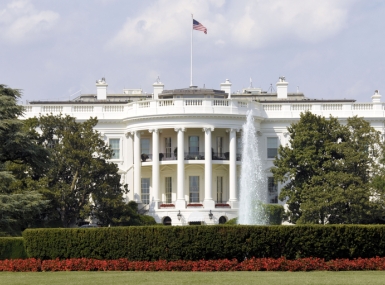Fulton County targets sex traffickers during Super Bowl

Key Takeaways
The New England Patriots and the Los Angeles Rams weren’t the only ones doing their homework before the Super Bowl.
Fulton County officials were tackling some issues of their own, including the potential for human trafficking. Although some say it’s a myth that there is increased sex trafficking during large sporting events, most counties don’t take chances with the issue. Just days before the big event, law enforcement authorities announced the arrest of 33 people in metro Atlanta for sex trafficking.
“Our goal is to look at what we have enacted locally at Fulton County and see where we can expand to keep children and women safe everywhere,” said Commissioner Robb Pitts, who chairs the Fulton County Board of Commissioners and convened a trafficking task force last year.
“It has taken months of preparations behind the scenes,” said Pitts. “Personnel have worked very closely with the City of Atlanta and state and federal partners in public safety and other issues.”
These are stepped-up efforts in addition to what the county does on a regular basis. For instance, Pitts has pushed through a county law that requires gas stations, convenience stores and restaurants to post information including a sex-trafficking hotline for victims.
“Over the last year I have worked closely with our law enforcement, business community and nonprofits to raise awareness of these issues,” he said.
At the urging of Pitts last summer, the Georgia Restaurant Association asked its members to voluntarily post signs that tell victims of human trafficking how to get help. County health inspectors check that the required signs are posted in bars when they make their rounds.
The county launched a billboard campaign earlier this year focusing on the “buyers.” “The message is ‘we see you…and have a place waiting for you at the Fulton County Jail,’” Pitts said. “We were fortunate enough to receive support from the business community in offering pro bono billboard space.”
The county’s increased monitoring of human trafficking during Super Bowl weekend included help from the FBI, the City of Atlanta, volunteers and a group of former NFL players who recorded an anti-trafficking video that’s now playing on YouTube. “The simple fact of bringing awareness to human trafficking is a priority,” said DJ Shockley, a former quarterback for the Atlanta Falcons. “Many people have no idea this is happening really close to them.”
In addition to ramping up its efforts to keep a lid on human trafficking during the Super Bowl weekend, the county’s Emergency Services personnel worked around the clock on issues like radio connectivity for public safety personnel, coordination of medical response teams and even setting up a backup 911 center, he noted.
The county was also dealing with an influx of visitors at the county airport; while most visitors come through Hartsfield-Jackson International Airport, the Fulton County Airport was also very busy, for visitors arriving by private and corporate jets and general aviation, Pitts pointed out.
“Our Government Center is less than half a mile from the stadium, so ensuring we have an appropriate security envelope is critical,” he said.
“Like many governments around the nation, we are very focused on cybersecurity as well and our teams have been hard at work to protect our IT networks.”

Attachments
Related News

County Countdown – June 30, 2025
Every other week, NACo's County Countdown reviews top federal policy advocacy items with an eye towards counties and the intergovernmental partnership. This week features the Senate reconciliation debate, transparency on sanctuary designations and more.

DHS releases list identifying sanctuary jurisdictions; includes nearly 400 counties
NACo, along with the National League of Cities, and the International Municipal Lawyers Association, requested additional clarification on the methodology used to create the list, and noted concerns around the legal challenges that localities face when complying with ICE detainers. As of this time, NACo has yet to hear of a county receiving a formal notification that they were included on the list.

U.S. House of Representatives introduces legislation to expand Medicaid coverage for behavioral health treatment facilities
On June 20, a bipartisan group of lawmakers introduced the Increasing Behavioral Health Treatment Act in the U.S. House of Representative. This bill aims to improve access to behavioral health care nationwide by removing long-standing Medicaid funding restrictions for behavioral health treatment in certain facilities, providing new flexibility for states and counties to meet growing behavioral health needs.
